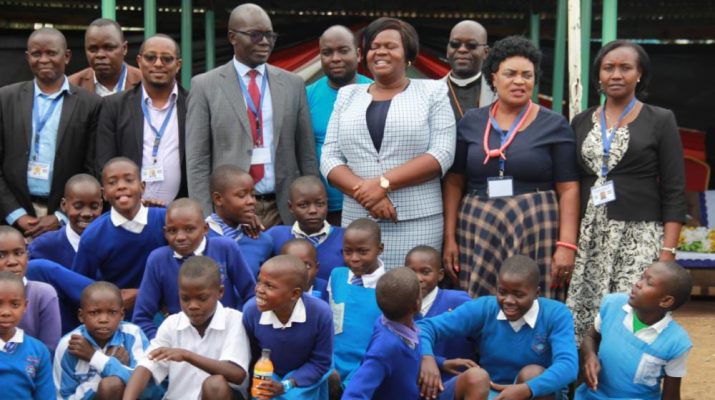Homa Bay County residents have raised concerns about the transition of Grade Six pupils to junior secondary school and questioned the preparedness of the teachers to welcome them.
They believe that junior secondary teachers are not well prepared for that task and that they need to be trained.
The residents voiced their opinion Thursday during a Presidential Working Party on Education Reform (PWPER) in Homa Bay that saw the attendance of a number of stakeholders from the education docket, CBC pupils, the governor, politicians and women fisher folk who submitted their proposals in regards to CBC implementation.
They said that inadequate infrastructure will also hinder the transition process as the few constructed CBC classrooms are not enough to accommodate the incoming students, as some of the classes are already in use by the current secondary students due to overpopulation.
Homa Bay County Senior Principal Chief Joshua Ochogo who voiced his opinion on the CBC implementation explained that the transition to junior secondary school will interfere with the infrastructure of two classes, Seven and Eight.
The two classrooms will be vacant and wasted as they will no longer accommodate pupils from lower classes.
“In terms of infrastructure, we will be wasting two classes. If the primary section ends at grade six and the pupils’ transition to junior secondary, the two will not be used and these are resources established through the efforts of the government and parents, and so will be rendered useless,” said Ochogo.
The residents were also concerned that at Grade Six, the children are not mature enough to take care of themselves hence are uncomfortable in sending their young children to schools especially in far places.
They now want junior secondary to be domiciled in primary schools. “When you look at the age of Class Six pupils who are to transit to junior secondary, they are too young to care for themselves and if you domicile them in primary schools then they will tend to mature and prepare themselves for life in high school,” said Ochogo.
They proposed that junior secondary be hosted in the two classrooms which the current Class Seven and Eight are using to avoid wastage of resources.
Ochogo stated that should the government feel the need for a different management for the junior secondary, then they can always post a head of that section to manage it but in primary schools.
The Chief noted that the government needed to consider the public through their participation to determine the best approach of implementing CBC before its conception.
“As a serious stakeholder and a parent, I want to say that CBC is a noble idea but it was somehow hurried. It needed a lot of research and public participation before its implementation at schools,” he said.
“I happened to be a teacher at some point where I taught in the 8-4-4 system. There were subjects which were good but were discarded at some point although they were practical subjects. Somehow, they are incorporated back through CBC but the timing of the curriculum is not right as it starts a little bit early in the life of a child. In the 8-4-4 system, the technical aspect started in class one,” he said.
However, he noted that the residents should embrace CBC and urged the government to make provisions for the materials required in implementing it, as a lot of parents are burdened.
Professor Collins Odote, a member of the working Presidential party and the Team leader for the Nyanza component of the consultations urged citizens to be sensitive in regards to CBC implementation as they air their proposals.
“I have listened to a wide range of proposals and one key message I am leaving behind is that we must keep in mind that it is the future of our children that we are determining and so we must be sensitive about it,” said Odote.

